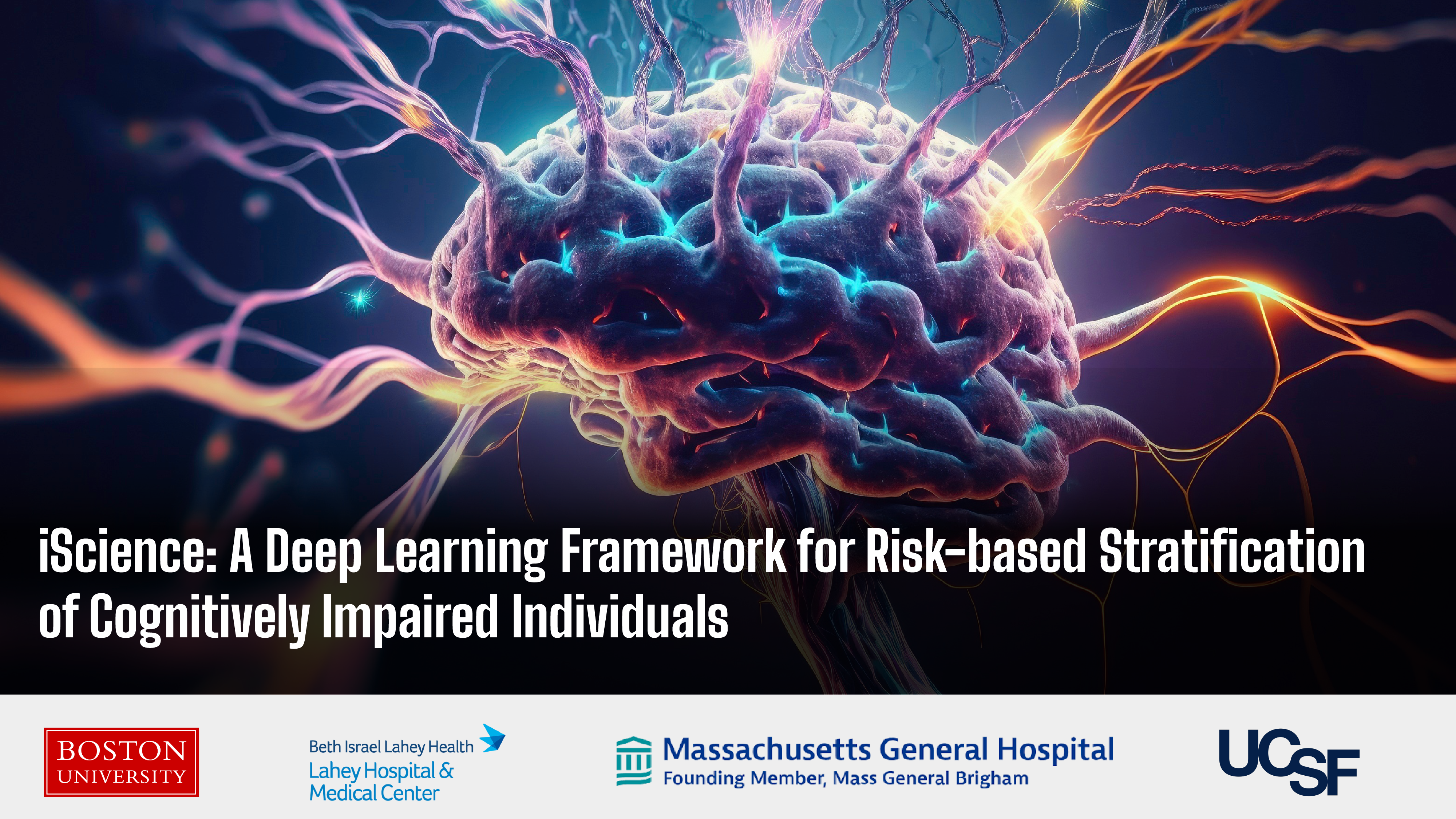BU-led Interdisciplinary Team Develops Data-driven Strategy for Early Alzheimer’s Assessment
Collaborating Institutions include University of California San Francisco, Mass General Hospital, and Lahey Hospital and Medical Center
By Maureen Stanton and Gina DiGravio
Alzheimer’s disease (AD) is the leading cause of dementia, afflicting more than six million Americans today. By 2050, this number is projected to rise to nearly 13 million, with one in three seniors dying with Alzheimer’s or another dementia.
Importantly, Alzheimer’s disease and related dementias are not an inevitable part of aging. Up to 40% of dementia cases may be prevented or delayed according to the Centers for Disease Control and Prevention. Following years of setbacks, the recent FDA approvals of anti-amyloid therapies (Aduhelm and Leqembi) have ignited hope for patients and caregivers. Still, the lasting impacts of these medications remain uncertain. One theory attributing past drug failures in AD is the potential late-stage selection of patients for experimental treatments, emphasizing the importance of timely intervention.
An interdisciplinary team of researchers led by Boston University has developed a deep learning framework that can stratify individuals with mild cognitive impairment (MCI) based on their risk of advancing to Alzheimer’s disease (AD). The study appears online this week in iScience.
“Our motivation in quantifying the risk of progression to Alzheimer’s disease (AD) is to help identify persons who could benefit from early interventions,” says corresponding author Dr. Vijaya B. Kolachalama, associate professor at Boston University Chobanian & Avedisian School of Medicine, and affiliate faculty of Computer Science, Hariri Institute for Computing, and Faculty of Computing & Data Sciences at Boston University. “Our findings demonstrate that risk-based stratification could be critical to paving a new way forward for physicians and pharmaceutical companies to provide targeted therapy for persons with Mild Cognitive Impairment (MCI) who would benefit from early interventions.”
The novel framework uses survival-based deep neural networks in conjunction with minimally processed structural MRI, a widely available, non-invasive technique. By employing state-of-the-art deep learning methods in conjunction with a SHAP analytical game theoretical approach, the researchers were able to identify regions particularly important for predicting increased progression risk.
“By utilizing advances in interpretable machine learning, we demonstrated that brain regions relevant to AD, such as the medial temporal lobe, are among the most important regions for predicting progression risk,” says Kolachalama.
The team studied data from the Alzheimer’s Disease Neuroimaging Initiative (ADNI) and National Alzheimer’s Coordinating Center (NACC), separating individuals with mild cognitive impairment (MCI) into groups based on their brain fluid amyloid-β levels. They studied gray matter volume patterns within these groups to identify risk groups, validating their findings with expert assessments. The researchers developed models that combined neural networks with survival analysis to predict the progress from MCI to Alzheimer’s disease. They then linked their model predictions with biological evidence, confirming Alzheimer’s diagnoses with post-mortem data.
According to the researchers, these findings represent innovation at the intersection of neurology and computer science, while underscoring model conformity with biological evidence using routinely collected information such as structural MRI to quantify risk of progression from MCI to AD.
“We submit that our practical approach to forecasting individualized progression risk in persons with MCI can have broad utility in various clinical and research settings with access to routinely collected structural neuroimaging data,” says Kolachalama.
Funding for this study was supported by grants from the Karen Toffler Charitable Trust, the American Heart Association (20SFRN35460031), and the National Institutes of Health (RF1-AG062109, R01-HL159620, R21-CA253498, R43-DK134273, RF1-AG072654, U19-AG068753 and P30-AG013846). We acknowledge grant support from Boston University, CTSI 1UL1TR001430, for our REDCap Survey.
In the News:
https://www.miragenews.com/bu-researchers-suggest-data-driven-strategy-for-1060446/
